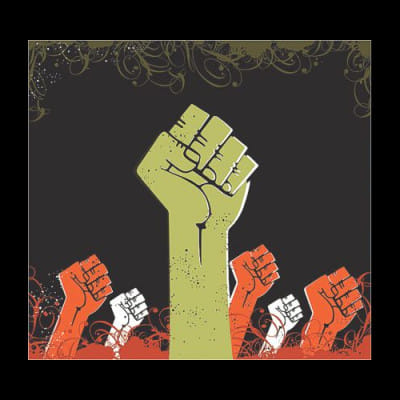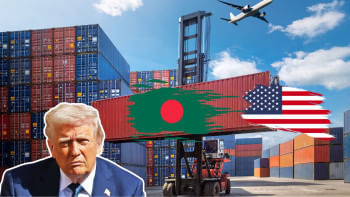2017: The year we found purpose

Each year begins with a ray of sunshine, as did 2017, oblivious to the chaos that was inevitably unleashed onto the world when some of the world's leaders took centre stage to change the world as we know it.
The right-wing wave keeps rising as we head to 2018, and chances are that it will continue to do so.
But not without a fight.
Because, this year, the proverbial other shoe has already dropped. This year, we are not fearful of what is to come; we know—more or less—what to expect. We know what we have to do in 2018 to prevent further infractions of social justice.
We have to resist.
We have to persist.
We have to build strength and stay strong.
We have to take care of ourselves.
But, we also have to remain focused.
And importantly, we have to pick our battles—different battles—so that we can win the war.
The war against women. The war against minority groups. The war against refugees. The war against the poor. The war against people of colour. The war against the ill. The war against workers. The war against, indeed, everyone.
However, not everyone sees these wars as what they are—there are groups that present an alternative view: that the war is against men, that white-men are the most marginalised group in the world, and so on, making 2017 seem like a year of polarisation. But given peoples' impetus to support a cause, I reframe the polarisation narrative to suggest that this is the year that people found purpose, because no matter which side people are on, it seems as though people really believe in what they believe in.
In my estimation, the year 2017 gave a cause to everyone looking for one. It gave politicians across the world a run for their political careers as they found themselves having to make hard choices, often siding against their diplomatic allies—the vote over Jerusalem being a key example of this; it provided scholars with new dimensions of existing social problems to theoretically and practically grapple with; it gave citizens the warning that their rights could be curtailed at any time. This means, in 2018, we have no option but to fight the system that produces the chaos that we see around us. We need to protest against policies that are directly and indirectly against the interests of the people. In this era of late capitalism, when corporations act like citizens, we have to remind policymakers about the human face of policy and its ramifications. We have to recognise and protest policies that promote and result in what David Harvey calls "accumulation by dispossession."
The good news is that some good folks are already doing this.
The alternative power and energy plan for Bangladesh drafted by the National Committee to Protect Oil Gas Mineral Resources Power and Ports, Bangladesh (NCBD) is an excellent example of not only protesting current policies (in this case, the Rampal project) but proposing alternative policies that could result in achieving the same goals that the Rampal project aims to achieve in terms of meeting energy and power demands.
On a more global scale, the fight against the war against women is being fought on many fronts. There are unprecedented levels of information about predators in various spheres: in media, entertainment, even academia. After Harvey Weinstein got outed as a serial sexual predator, a switch went off on peoples' heads and more and more people started talking about their own experiences of abuse resulting in the revival of the #metoo movement which threw light on the extent of the problem of sexual harassment. While this was not new news for many of us, and it felt as if the oppressed were being called upon to explain their oppression yet again, to be critiqued and disbelieved at random, it created that moment where no one could claim that gender equality has been achieved; there was no way that one could dismiss the notion of sexual violence experienced by women, and also men and other genders, with imperatives about what they should have done (or not done, or worn, as the case may be) to prevent the violation of their own bodies.
*
I've talked about the importance of purpose in this column before. Without purpose, life is inherently meaningless. Tautological, I know, but it still needed to be said because I think it is purpose that is, and has been, the crisis of our times. We have collectively pointed to lack of purpose as the root cause of, well, everything, from boredom to radicalisation and terrorism.
The importance of meaning-making is well-established as well and I argue that without purpose we have little to make meaning of. We need goals in life, something to work towards, and something to look forward to. Scholars often cite religion as a mechanism of meaning-making, but even religion makes promises—of heaven, for instance—and provides a raison d'etat for being "good" human beings. So if religion is opium for the masses, to take Marx's oft-used phrase out of context, it is because religion gives people a purpose. And that is why it is fairly easy to distort religion and inculcate, say, terrorism in its name.
But, I'm not here to preach religion.
Instead, I find hope in the fact that people have found purpose—beyond religion—in this tumultuous year. I find hope in the fact that even though we feel burnt out at times, and angry, and even hurt by the injustice around us, by the casualties of the many wars that are being waged on all corners of the world, we have it within us to look ahead, ready to take on a world that we don't always understand, or even love, but one that we are invariably trying to protect at all cost.
Nadine Shaanta Murshid is Assistant Professor at the School of Social Work, University at Buffalo, The State University of New York.





Comments